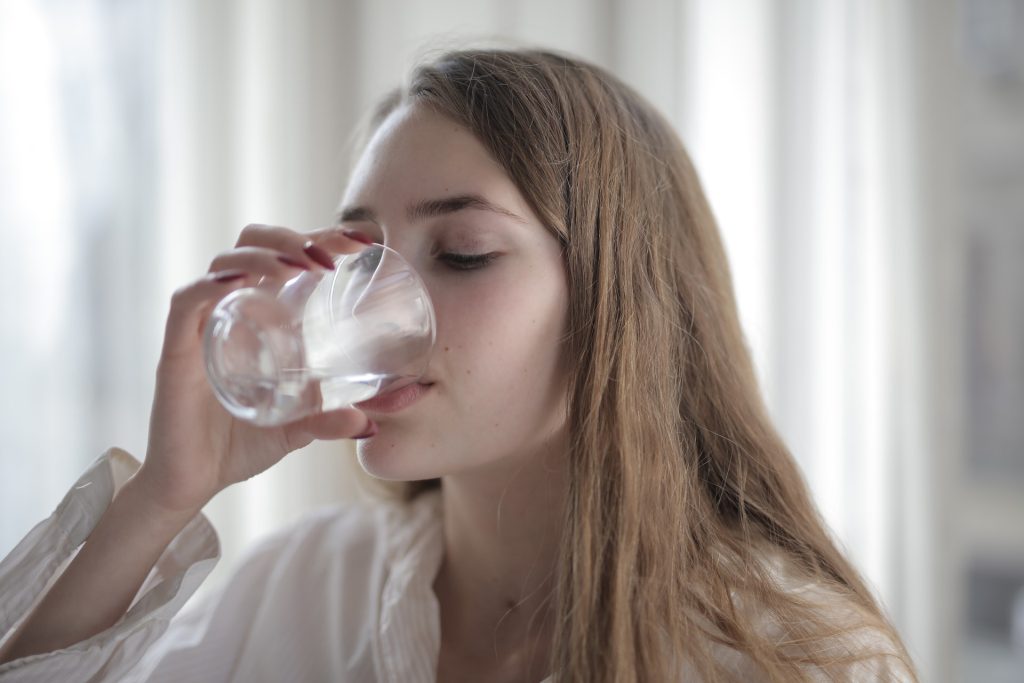Discover the impact of hydration levels on your skin health. Learn how proper hydration can enhance your skin’s appearance and prevent common skin issues.
How Hydration Levels Affect Skin Health
We all know that drinking water is good for our health, but did you know that it can also work wonders for your skin? Yes, hydration is the key to maintaining a healthy and radiant complexion. From the inside out, water plays a crucial role in keeping your skin looking its best. So, let’s dive into the wonderful world of hydration and discover how it affects your skin health.
Understanding the Importance of Hydration for Skin
When it comes to skincare, hydration is not just a fad, but a necessity. Your skin is the largest organ in your body, and it needs water to function properly. Water plays a vital role in maintaining the elasticity, barrier function, and overall health of your skin.
But why is hydration so important for your skin? Let’s dive deeper into the role of water in skin function.

The Role of Water in Skin Function
Water is like the life force of your skin. It helps to regulate body temperature, lubricate joints, and transport nutrients throughout your body. When it comes to your skin, water helps to maintain its pH balance, moisture levels, and overall function.
Imagine your skin cells as tiny sponges. When they are well-hydrated, they plump up, giving your skin a smooth and supple appearance. On the other hand, when your skin lacks water, those sponge-like cells become shriveled and dry, leading to a dull and lackluster complexion.
Furthermore, water is essential for the proper functioning of your skin’s barrier. The outermost layer of your skin, known as the stratum corneum, acts as a protective shield against environmental aggressors. When this barrier is compromised due to dehydration, it becomes easier for irritants, allergens, and bacteria to penetrate your skin, leading to inflammation and potential breakouts.
Without proper hydration, your skin can become dry, dull, and prone to various skin issues. It may feel tight, itchy, and uncomfortable. In severe cases, it can even crack and develop painful fissures.
Dehydration and Its Impact on Skin Health
Dehydration is the enemy of healthy skin. When your body lacks water, it affects your skin in more ways than one. Not only does it lead to dryness and flakiness, but it can also exacerbate existing skin conditions like eczema and psoriasis.
Think of dehydration as a magnifying glass for your skin’s imperfections. When your skin is dehydrated, fine lines and wrinkles become more pronounced, making you appear older than you actually are. This is because water plumps up the skin, filling in those tiny crevices and giving it a smoother appearance.
Additionally, dehydrated skin is more prone to inflammation and sensitivity. It can become red, irritated, and reactive to skincare products that would normally be well-tolerated. This can create a vicious cycle, as the use of harsh products to combat dryness can further strip the skin of its natural moisture, leading to more dehydration.
So, how can you ensure that your skin stays hydrated and healthy? Drinking an adequate amount of water is certainly important, but it’s not the only solution. Incorporating hydrating skincare products into your routine, such as moisturizers and serums, can help replenish and lock in moisture.
Furthermore, consider the environmental factors that can contribute to dehydration. Exposure to harsh weather conditions, air conditioning, and hot showers can all strip your skin of its natural oils and moisture. Protecting your skin with sunscreen and using a humidifier in dry environments can help maintain hydration levels.
In conclusion, hydration is crucial for maintaining the health and appearance of your skin. By understanding the role of water in skin function and taking steps to prevent dehydration, you can achieve a radiant and youthful complexion.
The Science Behind Hydration and Skin Health
Now, let’s take a closer look at the scientific aspects of hydration and how it influences your skin’s health and appearance.
Hydration is not only essential for overall health but also plays a crucial role in maintaining the health and appearance of your skin. Your skin is the largest organ in your body and acts as a protective barrier against external factors. Proper hydration is vital for keeping your skin functioning optimally.

How Hydration Influences Skin Elasticity
Have you ever marveled at a baby’s smooth and supple skin? Well, one of the secrets behind their youthful complexion is their high levels of skin hydration. When your skin is well-hydrated, it maintains its elasticity, allowing it to bounce back quickly and appear more youthful. Hydration helps to plump up the skin cells, reducing the appearance of fine lines and wrinkles. On the other hand, dehydrated skin can appear dull and lackluster, making fine lines and wrinkles more pronounced.
Furthermore, proper hydration promotes the production of collagen, a protein that gives your skin its structure and elasticity. Collagen helps to maintain the firmness and tightness of your skin, preventing sagging and promoting a more youthful appearance.
The Effect of Hydration on Skin Barrier Function
Your skin has a natural barrier that helps to protect it from external aggressors like pollution, UV rays, and bacteria. This barrier is primarily made up of water and lipids. When your skin lacks hydration, this barrier becomes compromised, leaving your skin susceptible to damage, irritation, and inflammation.
Keeping your skin hydrated helps to strengthen this barrier and maintain its protective function. Well-hydrated skin forms a strong barrier that prevents harmful substances from penetrating into the deeper layers of the skin. This reduces the risk of skin infections, acne breakouts, and other skin issues.
In addition, a well-hydrated skin barrier helps to retain moisture, preventing excessive water loss through evaporation. This is especially important for individuals with dry or sensitive skin, as their skin tends to lose moisture more easily. By maintaining adequate hydration levels, you can help your skin retain its natural moisture and prevent dryness, flakiness, and discomfort.
Moreover, a hydrated skin barrier also aids in the absorption of skincare products. When your skin is properly hydrated, it becomes more receptive to the active ingredients in your skincare routine. This means that moisturizers, serums, and other products can penetrate deeper into the skin, maximizing their effectiveness.
Overall, maintaining proper hydration is crucial for the health and appearance of your skin. By drinking an adequate amount of water, using hydrating skincare products, and adopting a healthy lifestyle, you can support your skin’s natural functions and achieve a radiant, youthful complexion.
Hydration from the Inside Out: Drinking Water for Skin Health
Now that we understand the importance of hydration, let’s talk about the best way to achieve it – drinking water!
Water, the elixir of life, is not only essential for our overall health but also plays a crucial role in maintaining the health and appearance of our skin. Our skin, being the largest organ in our body, requires proper hydration to function optimally.
But how much water should you drink daily to achieve optimal skin health? The age-old question has puzzled us for years. While the “eight glasses a day” rule is a popular guideline, the truth is that our water needs vary depending on factors such as body weight, activity level, and climate.
A general rule of thumb is to drink enough water to stay properly hydrated and maintain clear urine. When we are adequately hydrated, our skin appears plump, radiant, and supple. On the other hand, dehydration can lead to dryness, flakiness, and even exacerbate skin conditions like eczema and acne.
How Much Water Should You Drink for Optimal Skin Health?
So, how do you determine the right amount of water to drink for your skin health? It’s essential to listen to your body’s signals. Thirst is a clear indication that you need to replenish your body’s water levels. Additionally, paying attention to the color of your urine can provide insights into your hydration status. Clear or pale yellow urine indicates proper hydration, while dark yellow or amber-colored urine suggests dehydration.
While it’s crucial to drink water throughout the day, it’s equally important to note that our hydration needs can be met through various sources. Drinking water is undoubtedly one of the best ways to hydrate, but it’s not the only way.
The Truth About Hydrating Foods and Skin Health
Did you know that you can also hydrate your skin by consuming certain foods? Yes, you read that right! Some foods, like watermelon, cucumbers, and oranges, have high water content and can contribute to your overall hydration levels.
Watermelon, with its juicy and refreshing nature, is not only a delicious summer treat but also a fantastic source of hydration. Composed of about 92% water, this fruit can quench your thirst and provide a natural boost of hydration to your skin.
Cucumbers, often used in salads and spa treatments, are not only cooling and soothing but also packed with water. With a water content of approximately 96%, cucumbers can help replenish your body’s water levels and keep your skin hydrated and glowing.
Oranges, known for their tangy and citrusy flavor, are not just a great source of vitamin C but also a hydrating fruit. With a water content of around 87%, oranges can provide a refreshing burst of hydration to your body and skin.
So, make sure to include these hydrating foods in your diet for both your skin and your taste buds! By incorporating water-rich foods into your meals, you can enhance your overall hydration levels and promote the health and vitality of your skin.
Topical Hydration: The Role of Moisturizers
Drinking water is essential, but sometimes our skin needs an extra boost of hydration from the outside. That’s where moisturizers come in!
Choosing the Right Moisturizer for Your Skin Type
Moisturizers are not one-size-fits-all. Different skin types require different levels of hydration and specific ingredients. Whether you have dry, oily, or combination skin, finding the right moisturizer can make a world of difference in how your skin looks and feels.
The Benefits of Hyaluronic Acid and Other Hydrating Ingredients
Hyaluronic acid has become a buzzword in the skincare world, and for a good reason. This magical ingredient has the ability to hold up to 1000 times its weight in water, providing intense hydration to your skin. Look for moisturizers and serums containing hyaluronic acid or other hydrating ingredients like glycerin and ceramides for a moisture boost.
Common Myths About Hydration and Skin Health
Now that we’ve covered the basics of hydration and its impact on skin health, let’s debunk some common myths that often confuse skincare enthusiasts.
Debunking the Myth of Drinking Eight Glasses of Water a Day
While the “eight glasses a day” rule is a good starting point, it’s not a hard and fast rule. As mentioned earlier, our water needs vary, so instead of fixating on a specific number, focus on listening to your body and ensuring you stay properly hydrated throughout the day.
The Misconception About Oily Skin and Hydration
Contrary to popular belief, even oily skin needs hydration. Hydration helps to balance your skin’s natural oil production and prevent it from overproducing oil. Look for lightweight, non-comedogenic moisturizers specifically formulated for oily skin to keep it hydrated without clogging your pores.
In conclusion, hydration is the key to maintaining healthy and glowing skin. From drinking enough water to choosing the right moisturizers, there are various ways to keep your skin hydrated and happy. So, drink up, moisturize, and let your skin shine with hydration!







